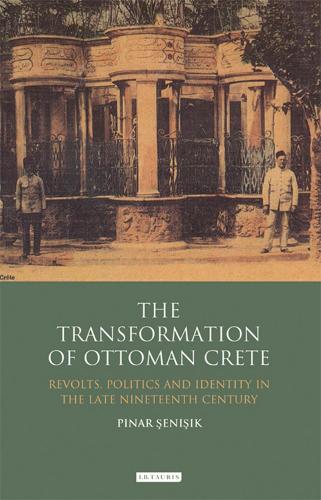
The Transformation of Ottoman Crete: Revolts, Politics and Identity in the Late Nineteenth Century
(Hardback)
Publishing Details
The Transformation of Ottoman Crete: Revolts, Politics and Identity in the Late Nineteenth Century
By (Author) Pinar Senisik
Bloomsbury Publishing PLC
I.B. Tauris
30th July 2011
United Kingdom
Classifications
General
Non Fiction
949.5905
Physical Properties
Hardback
352
Width 138mm, Height 216mm
580g
Description
The island of Crete under Ottoman rule in the nineteenth century saw successive revolts from its majority Christian population, who were set on union with the newly-independent Greece. This book offers an original perspective on the social, political and ideological transformation of Ottoman Crete within the nationalist context of the late nineteenth century. It focuses on the Cretan revolts of 1896 and 1897, and examines the establishment of the autonomous Cretan State and the withdrawal of Ottoman troops from the island in 1898. Based on Ottoman, British and American archival sources, the author demonstrates that, contrary to the standard view that the uprisings were merely an expression of discontent at Ottoman rule, Cretan Christians in fact aimed to radically change the socio-economic and political structure of Cretan society and to actually overthrow and expel the Ottoman administration. This book provides a deeper understanding of the Cretan experience, and of the wider politics of the Eastern Mediterranean, in the late nineteenth century.
Reviews
'The Transformation of Ottoman Crete tells the sad story of Ottoman Crete, explaining how Ottoman rule came to an end with the 1896 and 1897 uprisings of Cretan Christians. Ottoman Empire, Greece and revolting Cretans are the main actors in this study, though it also includes a detailed sketch of the nineteenth century 'gunboat diplomacy' of the European Great Powers: namely, Great Britain, France, Russia, Austria-Hungary and Germany. Eventually, Crete won its independence, and later annexed itself to Greece in 1908. But, the essential question of who won, still remains unanswered.' - Dr. Yavuz Selim Karakisla, Bogazici University; 'The island of Crete as a point of intersection between different civilizations and cultures has created its own particular way of life throughout the ages. The history of this island, which has witnessed so many rebellions, forms an integral part of both Ottoman and Mediterranean history.Pinar Senisik sheds light on the last years of Ottoman rule in Crete by laying special emphasis on the Cretan revolts 1896 and 1897. The author shows not only the political changes brought about by these revolts but also their socio-economic consequences and devastating effects on Cretan society as a whole.' - Professor Aydin Babuna, The Ataturk Institute for Modern Turkish History, Istanbul
Author Bio
Pinar Senisik is Assistant Professor of the Humanities at Dogus University, Istanbul. She graduated in Philosophy at Istanbul University and received her PhD in History from Bogazici University, Istanbul in 2007, with a doctoral dissertation entitled 'The Transformation of Ottoman Crete: Cretans, Revolts and Diplomatic Politics in the Late Ottoman Empire, 1895 1898'. Her research interests include the political and social history of the late Ottoman Empire, non-Muslim communities under Ottoman rule, comparative Mediterranean studies, and nationalism in the Balkans.
